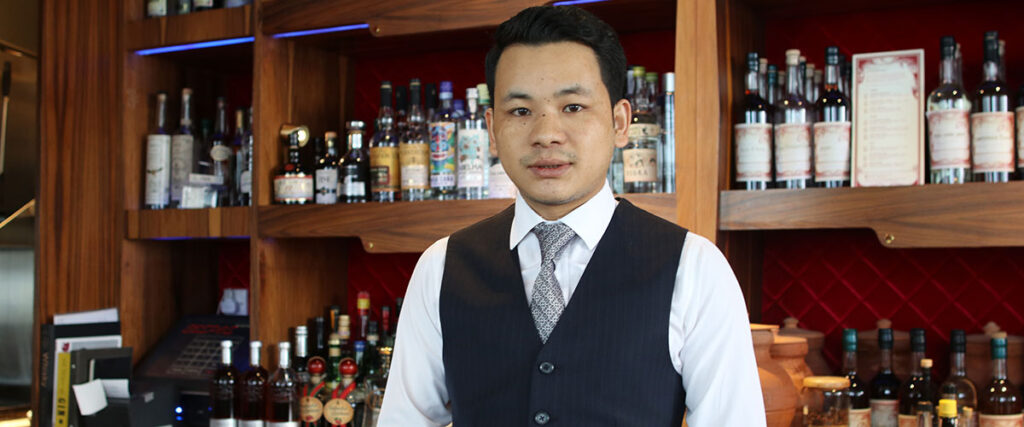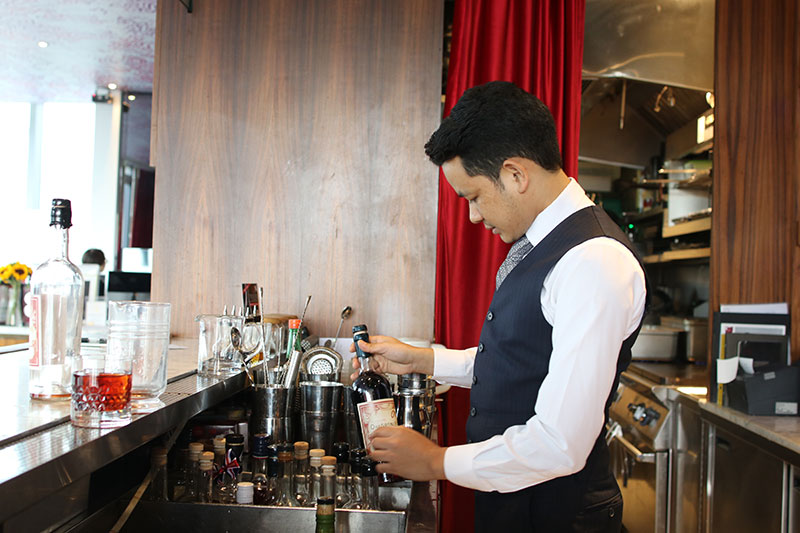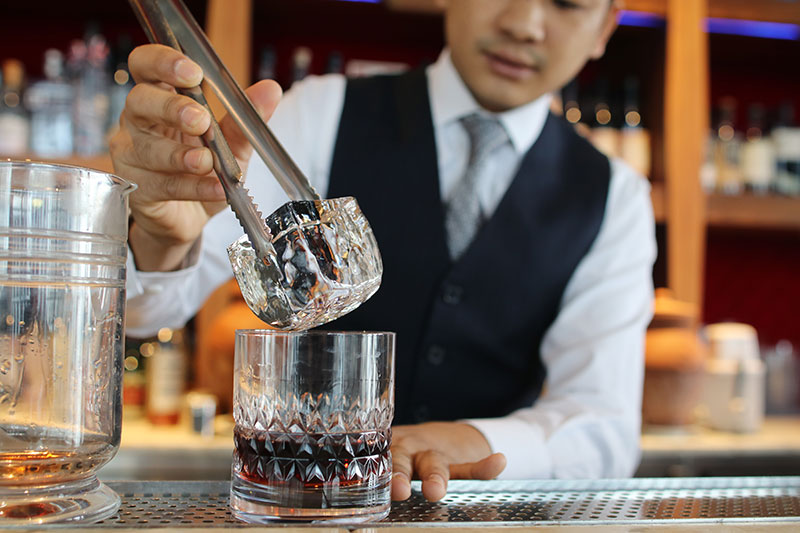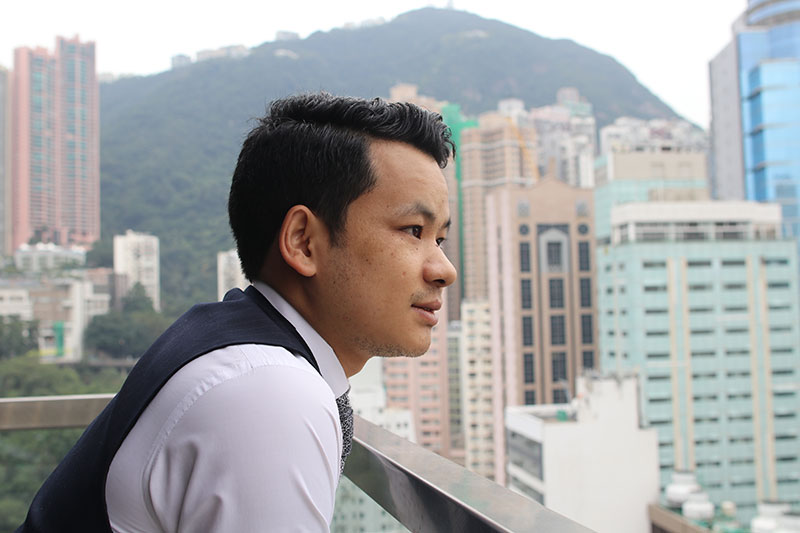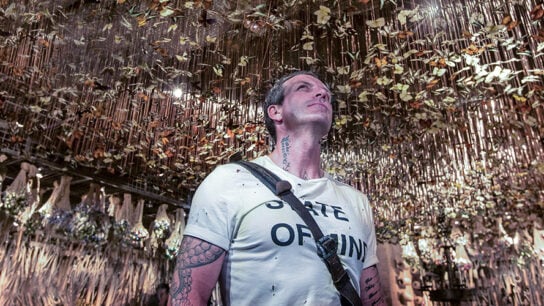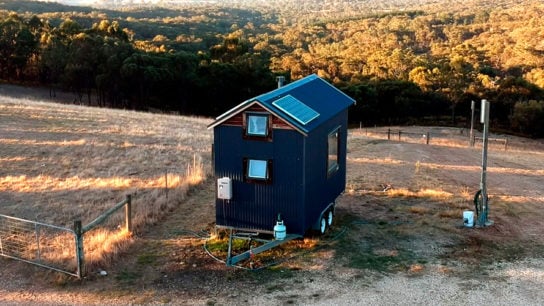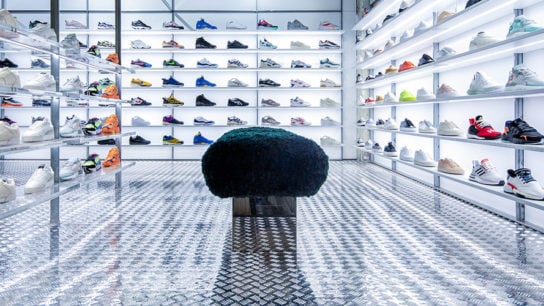Responsible living and bar hopping don’t have obvious connections, but meet Prem Shireesh; Head Bartender at ON Dining Kitchen & Lounge putting the eco-conscious into his cocktails.
Located at the pinnacle of Hong Kong’s clubbing district, ON Dining Kitchen and Lounge overlooks Central with the most spectacular view of the concrete jungle. A much-visited spot on the city’s luxurious nightlife circuit, its bar is overseen by head bartender Prem Shireesh, the gentleman to know for a stellar cocktail or two. He is also a man trying to change the reputation of his industry as one that puts the good times above all else. A determined campaigner for more sustainable practices in restaurants and bars, he has initiated a series of schemes on his watch to try and make bar hopping less at odds with responsible living than you might think.
“It’s important to promote a sustainable future for Hong Kong. It’s everyone’s role to play an active part so we strive for a clean and green environment,” explains Prem Shireesh, the driving force behind ON Dining Kitchen and Lounge’s sustainable concept. Born and raised in Nepal, Prem moved to Hong Kong with his family when he was 17 years old. Although he never managed to graduate from high school, he took the opportunity to dive straight into the workforce when he entered the F&B industry, and he has never looked back. In 2014, he began working at ON Dining Kitchen and Lounge and has since seen it transition from a building site to one of the most talked about bars in town. “I saw this place develop from scratch. There was no furniture, the bar wasn’t built, the floor was still untouched.”
Even with a strong-willed approach, it took Prem 3 years to determine how sustainability could play a part in Hong Kong’s highly competitive F&B sector. Inspiration came from a bar called White Lyan in London where he learnt a thing or two about sustainable practices, including eliminating the use of ice in drinks. He mentions how the bar pre-cooled their drinks as an alternative method of serving ice-cold drinks. “I adopted the idea of reusing the ice so it doesn’t produce a great amount of waste. We strictly use block ice and we can re use it 3 times before it turns into water,” he tells us.
Committed to minimising waste when stirring up a cocktail, you’ll only find biodegradable straws made from potato starch behind his bar. And he has worked hard to develop a synergy between the bar and kitchen teams as they work together to utilise resources – “We use at least 20 oranges per night for their peel in our cocktails, but the bar doesn’t use the flesh. Instead, we give it to the kitchen to make puree, sorbet, ice cream, and all sorts of things.”
Prem has fought hard for guests to drink with a conscience and explains it’s not the act of making a drink that harms the environment, but rather how restaurateur suppliers work that does the damage, as the industry only cares about convenience and costs. “It’s difficult to coordinate with different companies to deliver and supply stock,” he says. “Packaging is a big problem as companies use a lot of plastic to wrap products and maintain quality, but this harms the environment and produces waste that take years to degrade. If things are convenient, then most likely they aren’t are eco-conscious.”
In the past couple of years, guests and staff have become more inclined to work together to reduce waste. There’s a wonderful sense of coexistence in the business and he’s managed to cut down on the use of tissues by providing napkins – a small tweak that actually can have bigger effects. “Traditional bars supply a great amount of tissue which generates an enormous amount of waste. If you know how to fold a napkin correctly and ensure there is always a clean surface for use, this can last a guest the whole night,” explains Prem. It helps that most of his customers are bankers and office workers ranging from 25–40 years old as he finds them definitely more open to the idea of reusing things than their older generation.
Stepping away from the bar area, Prem gestures around the lounge and describes how sustainability is not just about the drinks and the guests. A big contribution towards being sustainable is the energy output the building emits – factors such as the lights, music, and the air con are all taken into consideration. “If you want to practice sustainability, it’s not only about the drinks but also the design of the bar. Sustainability is about everything, saving costs and permanently thinking about how we can reduce these things to cut waste.”
Even though he thinks that he genuinely does see the bar industry gradually becoming more sustainable, there is much more to be done and it is not only limited to bars – “I understand that clubs are busier than bars but I believe that sustainability is achievable there.” But when asked if sustainability is expensive, he is crystal clear. “When we practice sustainability the costs are usually lower – why would we need to increase the price? Sustainability is about reducing things, not increasing consumption – this is why everyone should be able to play their part.”
When not playing his part, Prem does like to let his hair down a little. For this season, he recommends we should all be drinking cocktails that are, “a little old fashioned, with lots of spices – anything with cinnamon or cloves,” to get in the festive mood. And when it’s his time to switch off, the bartender and campaigner likes to keep his choices simple. “There’s a new bar called Old Man in Central that’s been opened by my good friends. It’s a nice place and they treat their customers well.” As we now know, with some clear thought and clever changes, these sorts of bars could be treating our wider world better, too.
Details
Address: 18 On Lan Street, 29/F, Central, Hong Kong
Telephone: +852 2174 8100
www.ontop.hk
Related Articles
8 Sustainability Startups in Hong Kong to Watch
Hong Kong Restaurant Guide: 67 Best Restaurants You Have to Try
